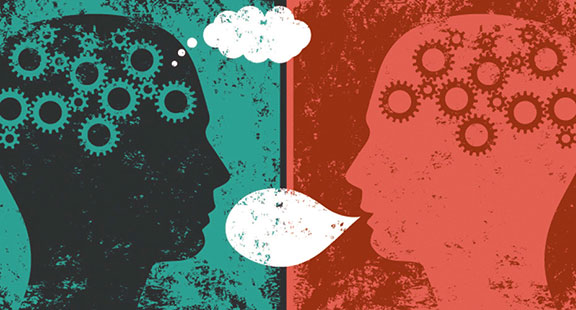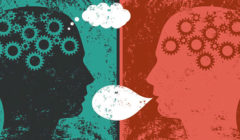Defining Our Terms
I don’t remember when I first heard the term “trickle-down economics.” Wikipedia associates the term with “Reaganomics” and “laissez-faire capitalism,” a term I first heard in social studies class and in relation to Theodore Roosevelt’s campaign to break up monopolies. Vertical monopolies controlled all supply and production aspects of their businesses while horizontal monopolies took over other businesses to eliminate competition and fix market prices. The French term “laissez-faire” translates roughly as “let it go” or “let it pass.” Laissez-faire economics allowed for free markets but not unbridled greed; Republicans, Democrats and Progressives disagreed about limits.
I also remember this: back when my teacher wrote “laissez-faire” on the blackboard, the boys in the back of the classroom snickered and whispered, “you’re laissez-faire” and “I’d like to laissez-faire you.” Different people focus on different things.

Neuro linguistic theory attempts to describe how we perceive and communicate our thoughts through language.
Neuro linguistic theory attempts to describe how we perceive and communicate our thoughts through language. We think about ourselves and our experiences using the words and concepts we know at that time. When most infants are trying to personally address “Mama” and “Dada,” they are also noticing the vibrations, facial expressions and tones of voice associated with the judgements “good” and “bad.” What is good, bad or neither differs in different situations.
Words have the power to comfort, threaten and convince. It helps to know the meaning and origins of the words and terms that we use and to pay close attention to words spoken to us and about us. Buzzwords, memes and platitudes can stereotype and then marginalize people.
The term “white privilege” popped up in many places during the 2016 presidential campaign. Many “white” people, perhaps the very white people who provided the current president with enough votes to leverage an Electoral College defeat of the candidate who truly won the most votes, never were all that privileged in the overarching socioeconomic reality of history. Trickle-down prosperity never trickled down to everyone. While we like to believe everyone can access a good education and good prospects, value judgements about what’s good guide what we think about those possibilities. Most learning starts in the home and today’s laissez-faire facilitated off-shoring of US jobs has left many households, non-white and white, struggling economically and educationally. In recent years, demographic studies show rising patterns of poverty and overuse of mind-altering substances in “white” and politically right-wing locales while the ages old tradition of assigning blame to scapegoats continues unrecognized and unabated. In family, ethnic and religious systems where might enforces some perceived right, the weakest or most nonconforming members are the first to be targeted when things get uncomfortable for someone more powerful.

Human consciousness manifests as self-talk, sometimes positive, sometimes not.
It is my belief that poorer girls suffer the most damage in such systems.
This past summer, in Oswego County, four people, two men and two women one of whom is the mother, were accused of abusing a ten-year-old girl by withholding food, dousing what food was allowed with hot sauce, and, among other things, forcing the girl to run, tied up, behind a car. CNY Central.com quotes the attorney defending one of the accused as follows: “They disciplined a child. Disciplining a child out here in this part of the county is a little different than disciplining a child in Fayetteville or Skaneateles. In those places you may discipline a child by removing their iPad or taking away their computer privileges. They chose to discipline the child —she had made some statements, she was acting out— and they took her for a walk to settle her down.”
Two of four news items I read about this case suggest one of the accused had a tenth-grade education and a third-grade reading level. I found no mention of how the accused might himself have been “disciplined” as a child or of what the ten-year-old victim’s reading level was … I mean is … or perhaps … was then, is now and might eventually be. Environment affects learning and since this girl’s mother, reportedly the only employed member of this household, a household where food was locked up, stands accused of endangering her daughter’s welfare, this girl’s primary familial relationship along with the girl’s sense of bodily integrity and dignity have already been damaged.
Adverse childhood experience studies link childhood trauma with health problems that extend into adulthood. Adults define and interpret the first words children learn. Human consciousness manifests as self-talk, sometimes positive, sometimes not. Linguistically, it’s likely intentional that the attorney whose duty it is to defend his client, used the term “discipline” five times to describe his adult male client’s actions toward a ten-year-old girl. The word discipline conjures images of stalwart moral exemplars.
Here and everywhere, specificity and detail matter.










